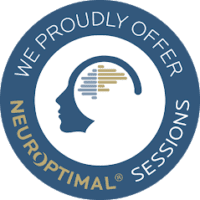Navigating Work-Life Balance

By: Shannon Beaver LCSW, CAADC, Doctoral Candidate, Founder/Therapist at Mount North. | Published: June 18, 2025
A Counselor’s Guide for High-Performing Professionals
Real-life strategy to reach your goals.
As a counselor, I often work with high-performing professionals (CEOs, stock traders, perfectionists, leaders, business owners, driven students, etc.) who find themselves managing an intricate web of career ambitions, family responsibilities, and personal goals. While striving for success in all areas, these individuals may experience overwhelming stress, often resulting in burnout, anxiety, and even depressive symptoms. The good news is that with thoughtful intervention, these challenges can be managed in a sustainable way. Effective counseling can help identify underlying patterns that may be holding you back, and through the use of evidence-based tools, we can create a clear action plan to reduce stress, enhance communication, and achieve your personal and professional goals.
Real-life strategy to reach your goals.
Effective Strategies for Managing Work-Life Balance
We strive for diversity across the globe
Work-life balance may feel like a distant dream for high-performing professionals, especially those who find it difficult to set boundaries between work and personal life. However, finding a sustainable rhythm is entirely achievable, and one powerful tool in this process is time blocking. Time blocking allows you to intentionally carve out time for work, family, self-care, and other important activities, preventing one area of your life from dominating the others.

Real-life strategy to reach your goals.
Managing Somatic Symptoms of Stress
Real-life strategy to reach your goals.
Stress affects not only your mental state but also your body, and high-performing professionals often experience somatic symptoms such as tension, headaches, fatigue, or even panic attacks. These physical manifestations of stress are a signal from your body that it’s time to address the buildup of stress hormones—such as cortisol—that accumulate throughout the day.
Small Portions of Stress Management:
Managing stress effectively involves breaking down self-care and stress-reduction activities into small, manageable portions throughout the day. This is critical because when you try to manage stress only at the end of the day, it may be too late to prevent the physical effects of anxiety or panic.
Rather than scheduling a single long break for relaxation, incorporate short moments throughout your day to reset. This could include deep breathing exercises after a challenging meeting, stretching during a break, or taking a five-minute walk after completing a significant task. These micro-breaks, spaced throughout your day, help prevent the accumulation of stress hormones and create moments of recovery, reducing the chances of anxiety, sleep issues, or burnout.
Counseling can help you identify specific patterns of stress and provide you with tools like mindfulness practices or body scan exercises to ease tension in real-time. We may also use assessments to explore whether chronic stress has become a significant barrier to achieving your goals or if symptoms of anxiety or depression are contributing to the physical effects you’re experiencing. In these cases, a counselor can help design a personalized approach for managing both the psychological and somatic aspects of stress.
Real-life strategy to reach your goals.
We strive for diversity across the globe
Improving Communication with Family Members
Communication within the family can be challenging for high-performing professionals, especially when work demands are high. The key is not just talking but listening—being present and communicating effectively, both when expressing your needs and when responding to your loved ones.
Active Listening and Expressing Needs:
High performers often feel like they don’t have time for family discussions, which can lead to misunderstandings and frustration. Active listening—fully engaging with the speaker and focusing on their needs—can foster stronger connections. In addition, using assertive communication techniques to express your needs without guilt is essential. Rather than saying, “I don’t have time for this,” try, “I am feeling distracted by my work right now. I want to be fully present and understand what you are saying. Can you give me a few minutes to finish this so I can give you all of my attention?” This approach sets boundaries while ensuring you are being both clear and respectful.
Counseling can play an important role in helping you become more self-aware and identify any patterns of avoidance or perfectionism that may hinder your communication. Evidence-based tools like The Five Love Languages or Non-Violent Communication can help you and your family members communicate more effectively, allowing you to manage both work and home life in a balanced way.
Using Assertive Communication at Work
Real-life strategy to reach your goals.
Assertive communication is the ability to express your thoughts, needs, and boundaries in a clear and respectful manner. For high-performing professionals, this is vital for managing expectations at work and avoiding overwhelm.
Assertiveness for Effective Performance:
In the workplace, high achievers often face pressure to meet expectations that are either unrealistic or unclear. By practicing assertive communication, you can set realistic goals, clarify expectations, and manage workload more effectively. For example, instead of passively agreeing to a project because you fear disappointing others, use assertive statements like, “I am happy to take on this project, but I will need to adjust the timeline or delegate some tasks to ensure quality.”
Counseling can provide you with tools to develop these skills. We can work on recognizing patterns of perfectionism or anxiety that may lead you to overcommit or avoid necessary discussions. Together, we will use strategies like role-playing or cognitive-behavioral techniques to help you become more confident in asserting yourself at work.
Setting and Achieving Personal and Professional Goals
High-performing professionals are often highly goal-oriented, but there’s a common pitfall many of them face: setting goals that are too small or focused on minor tasks that, while important, don’t necessarily move them closer to their ultimate aspirations. These smaller goals can sometimes feel like a never-ending to-do list, leading to burnout, frustration, and a sense of stagnation. The true challenge lies in understanding what really matters and aligning day-to-day tasks with your larger, more meaningful dreams.
Real-life strategy to reach your goals.
We strive for diversity across the globe
Frequently Asked Questions About Work Life Balance Therapy/Counseling
Real-life strategy to reach your goals.
Q: What is work-life balance therapy?
A: Work-life balance therapy helps individuals manage stress, set boundaries, and create a healthier relationship between their personal and professional lives. It focuses on improving overall well-being by identifying sources of burnout or overwhelm.
Q: Who can benefit from work-life balance counseling?
A: Anyone feeling overworked, emotionally drained, or struggling to find time for themselves or their loved ones can benefit. It’s especially helpful for professionals, parents, caregivers, and those in high-demand roles.
Q: What can I expect during a session?
A: Sessions typically involve identifying your stressors, discussing daily routines, and exploring ways to improve time management and boundary-setting. Your therapist will guide you in developing strategies tailored to your needs.
Q: Can therapy really help me feel more balanced?
A: Yes. Counseling can provide clarity, support, and tools that empower you to make practical changes. Many people report increased satisfaction, reduced stress, and more control over their schedules after therapy.
Conclusion
As a high-performing professional, achieving a balance between work, family, and self-care can feel daunting, but it’s entirely within your reach. By using strategies like time blocking, setting boundaries, and incorporating small, consistent stress-management practices, you can manage the pressures that come with high expectations. Additionally, through assertive communication and effective goal-setting, you’ll be better equipped to navigate both personal and professional challenges. Counseling offers the opportunity to explore the underlying factors that contribute to stress, anxiety, and perfectionism, using evidence-based tools to help you gain clarity, set realistic goals, and ultimately, lead a more balanced life. Whether through in-person or online therapy, you don’t have to navigate these challenges alone—professional support can guide you toward meaningful change.
Absolutely! Here’s a revised version of the blog post, tailored to athletes. It focuses on the unique challenges athletes face, particularly those who are balancing high-performance goals with personal well-being, family life, and the mental and physical demands of their sport.
Related Posts


